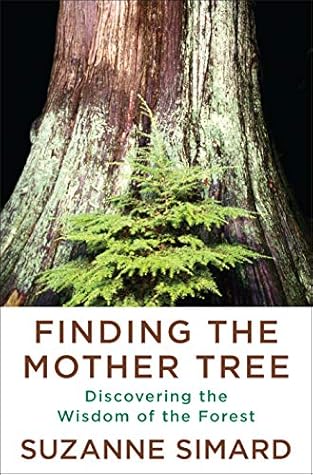More on this book
Community
Kindle Notes & Highlights
Read between
June 16 - December 2, 2021
Since carbon-14 is radioactive,
With the cages up, we were ready for the moment I’d been planning and waiting for during the past full year, ever since I’d first put the seedlings into the ground. To see if birch and fir traded carbon—whether they communicated with each other through belowground networks.
if so, I had a big responsibility to stop the madness of the wholesale removal of native plants.
twirling petioles,
Based on Read’s study,
I was part of something much greater than myself.
We were listening to birch communicate with fir.
we both knew that we’d picked up something miraculous happening between the two tree species. Something otherworldly.
The roots of the birch, fir, and cedar were massive, intertwining, and covered with mycorrhizas.
A raven
Nlaka’pamux,
the raven as a symbol ...
This highlight has been truncated due to consecutive passage length restrictions.
It took five ten-hour days to grind all the samples.
Don was working on his own dissertation, examining clear-cutting effects on forest composition and carbon-storage patterns across a portion of British Columbia the size of Oregon,
soon to discover that clear-cutting was causing carbon dioxide to pulse into the atmosphere at unprecedented rates.
Even though the birch and fir had been grown separately, most of the mycorrhizal fungi colonizing their roots were the same ones.
Dave Perry,
The seven shared fungi, we’d later discover, represented a fraction of the dozens of fungal species in common between birch and fir.
Paper birch and Douglas fir were trading photosynthetic carbon back and forth through the network.
Even more stunning, Douglas fir received far more carbon from paper birch than it donated in return.
Far from birch being the “demon weed,” it was generously gi...
This highlight has been truncated due to consecutive passage length restrictions.
the more shade that birch cast, the more carbon it donated to fir.
Birch and fir were trading carbon. They were communicating. Birch was detecting and staying attuned to the needs of fir.
The sharing of energy and resources meant they were working together like a system. An intelligent system, perceptive and responsive.
Roots didn’t thrive when they grew alone. The trees needed one another.
researchers were firmly split into camps. Fights erupted in seminars.
Regardless of the disagreements, the indiscriminate removal of native plants was continuing, and the diversity of the forest was still falling victim.
Kamloops.
Don
Mary,
Beating myself up, but doing so out in the forest, which I knew on some level, even in my anguish, held the promise of healing.
I decided to publish my research findings.
Dave and Dan
in a field situation and for the first time…shows unequivocally that considerable amounts of carbon—the energy currency of all ecosystems—can flow through the hyphae of shared fungal symbionts from tree to tree, indeed, from species to species, in a temperate forest.
the wood-wide web,


